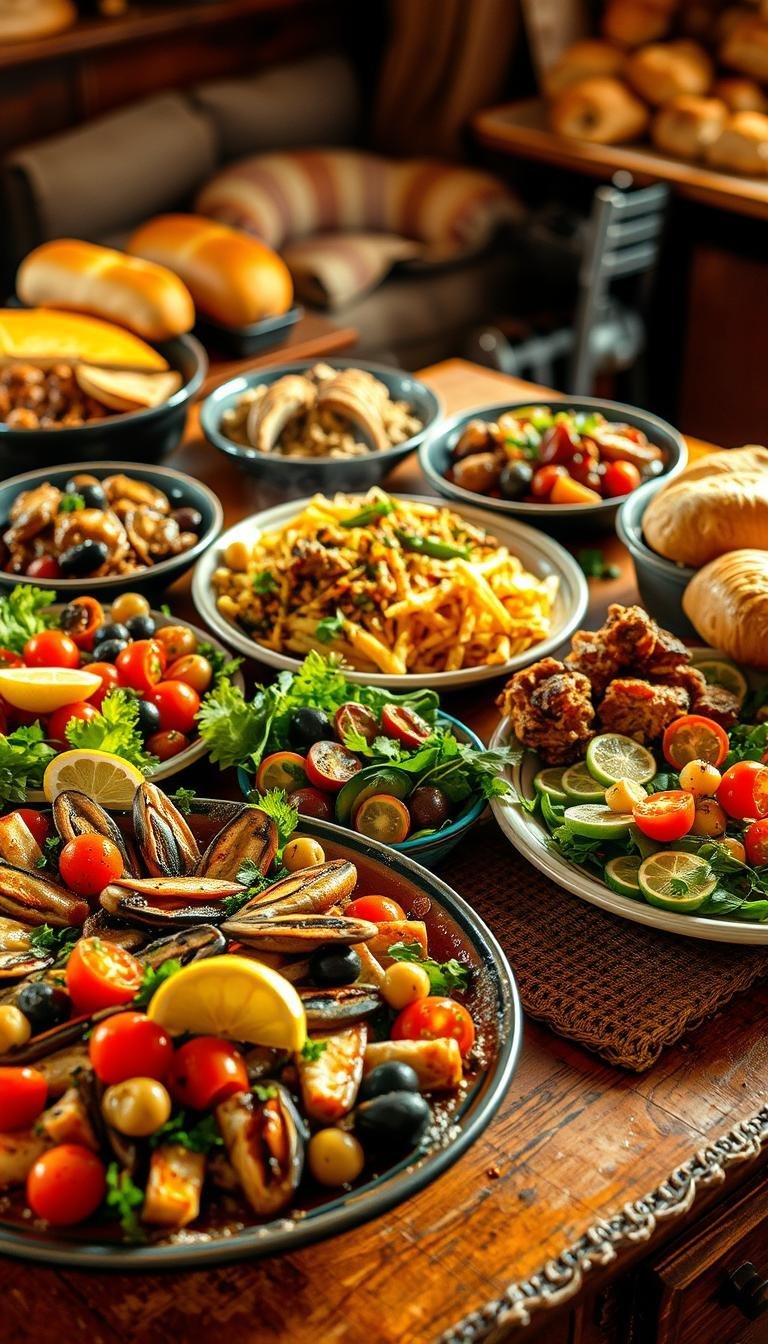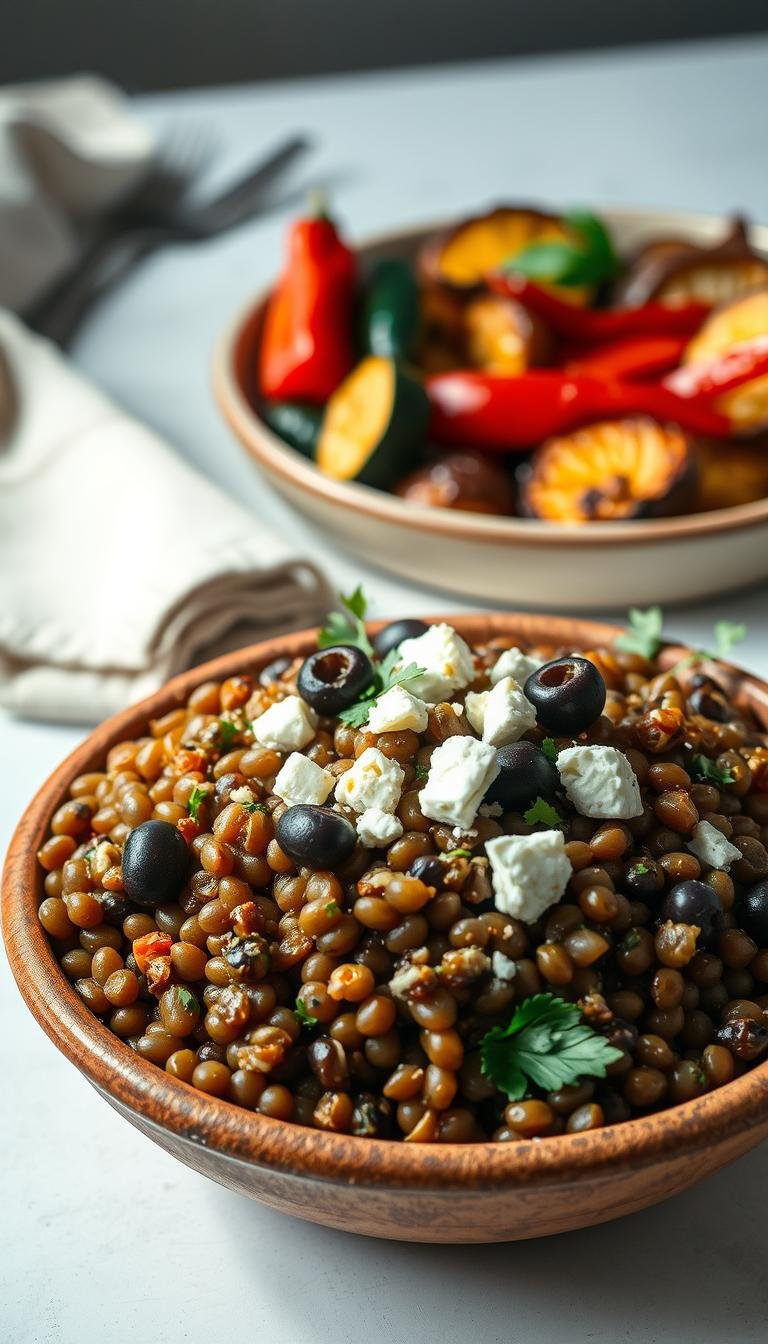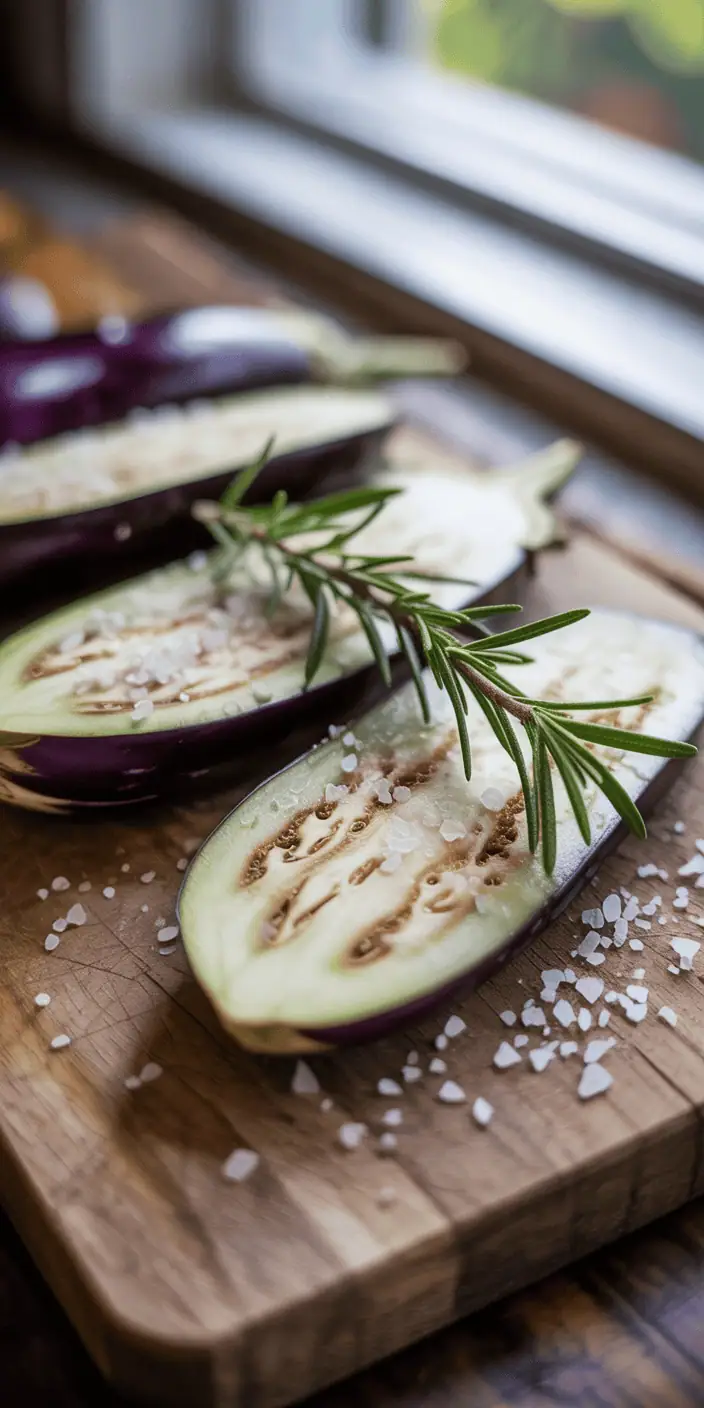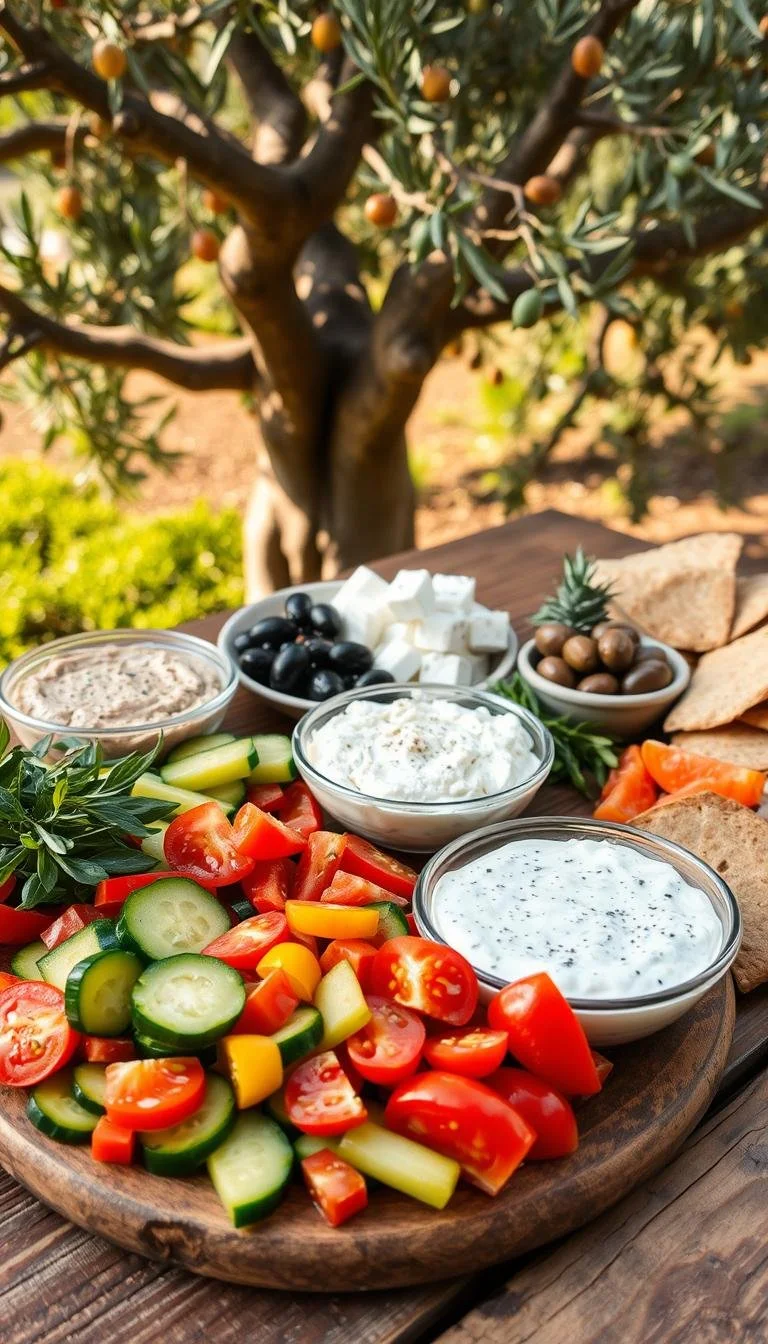(Hey! Some links in this post may be affiliate links — meaning I may earn a small commission if you buy through them, at no extra cost to you. As an Amazon Associate, I earn from qualifying purchases. I only share products I genuinely love and think you’ll find useful too. Read the full disclosure here).
The Mediterranean diet is more than a trend. It’s a way of eating that has changed lives all over the world. It focuses on fresh foods, healthy fats, and tasty flavors. This diet has become a key part of wellness for many in the U.S. and elsewhere.
Find out how the Mediterranean diet can improve your heart health and boost your energy. It’s easy to add to your daily life.
This diet comes from ancient traditions in Greece, Italy, and Spain. It offers tasty meals and proven health benefits. Whether you want to lose weight, feel more energetic, or just eat better, this guide will help.
Learn how simple changes like using olive oil, eating fish, and choosing seasonal veggies can make you healthier for life.
Contents
- 1 What Is the Mediterranean Diet?
- 2 Historical Background of the Mediterranean Diet
- 3 Nutritional Foundations of the Mediterranean Diet
- 4 How to Get Started with the Mediterranean Diet
- 5 Key Foods to Include in Your Mediterranean Diet
- 6 Preparing Delicious Mediterranean Recipes
- 7 Incorporating Mediterranean Culture into Your Lifestyle
- 8 The Mediterranean Diet and Weight Management
- 9 Common Myths About the Mediterranean Diet
- 10 The Science Behind the Mediterranean Diet
- 11 Tips for Dining Out on the Mediterranean Diet
- 12 Long-Term Benefits of Following the Mediterranean Diet
What Is the Mediterranean Diet?
The Mediterranean diet is more than a trend; it’s a way of life. It’s based on eating whole foods and enjoying vibrant flavors. By following mediterranean diet guidelines, people can live longer and feel better.
Overview of the Diet’s Principles
This diet focuses on eating plants, good fats, and some protein. The mediterranean diet pyramid shows how to balance these. It puts fruits, veggies, whole grains, and legumes at the base.
Olive oil is the main fat, and fish and poultry are eaten often. Red meat is eaten less. Daily exercise and eating with others are also key.
Key Components and Food Groups
- Plants first: Salads, beans, and fresh produce are the base.
- Healthy fats: Olive oil and nuts add flavor and nutrition.
- Seafood focus: Fish like salmon or sardines are eaten 2-3 times a week.
- Limitations: Avoid processed snacks, refined sugars, and red meats.
Health Benefits Associated with the Mediterranean Diet
“Research shows this diet reduces heart disease risk by up to 30%.”
Studies show it lowers inflammation, improves brain health, and helps with weight. It’s flexible, so you can enjoy it while staying healthy.
Historical Background of the Mediterranean Diet
The Mediterranean diet’s story starts long before it was called a “diet.” For centuries, people in Greece, Italy, and North Africa ate what their land and seas gave them. This created a way of life now known as the Mediterranean diet.
This mix of need and culture made simple ingredients into nourishment and community.

“Meals were moments of connection, not just meals,” a proverb from Sicily reminds us. This social heartbeat remains central to its legacy.
Origins and Cultural Influences
Coastal climates and fertile lands shaped what people grew and traded. Greeks relied on olives and grains, while Spaniards used citrus and seafood. Trade networks spread spices and techniques, creating shared flavors.
For example, Moroccan tagines and Italian risottos both highlight slow cooking—a hallmark of Mediterranean diet traditions.
Traditional Mediterranean Eating Patterns
These societies turned resourcefulness into art. Daily practices included:
- Seasonal eating tied to local harvests.
- Communal meals that lasted hours, not minutes.
- Creative use of leftovers to avoid waste.
These habits became the Mediterranean diet guidelines we follow today. They show that sustainability and joy can go hand in hand.
Nutritional Foundations of the Mediterranean Diet
The Mediterranean diet is loved for its science-backed nutrition. Each food group is picked for its health benefits, not just taste. Let’s explore how these foods support our health.
Healthy Fats vs. Unhealthy Fats
Olive oil, nuts, and fatty fish like salmon are key. They’re full of monounsaturated fats and omega-3s. These fats help lower inflammation and protect the heart.
On the other hand, trans fats in fried foods raise cholesterol. The Mediterranean diet chooses healthy fats over unhealthy ones.
The Role of Whole Grains
Whole grains like farro and quinoa give slow energy. They’re full of fiber, keeping you full and feeding good gut bacteria. Unlike refined carbs, they help keep blood sugar stable, preventing energy crashes.
Importance of Fruits and Vegetables
“Colorful produce is nature’s pharmacy,” says Harvard School of Public Health research. “Each hue signals unique antioxidants.”
Tomatoes, leafy greens, and berries are packed with vitamins C and E. These vitamins fight off cell damage, lowering disease risks. Eating a variety of colorful plants every day boosts these health benefits.
How to Get Started with the Mediterranean Diet
Starting the Mediterranean diet is easy. Just take small steps. Focus on habits that fit the diet and your life. Here’s how to start:
Simple Meal Planning Tips
Start with a mediterranean diet meal plan that fits your schedule. Choose whole foods over processed ones. Try these tips:
- Plan meals weekly with a mediterranean diet food list as your guide.
- Make batches of roasted veggies or grain salads for quick meals.
- Replace refined carbs with whole grains like quinoa or farro.
Pantry Essentials for Mediterranean Cooking
Stock up on these key items:
- Extra virgin olive oil for cooking and dressings.
- Canned beans (e.g., chickpeas) for protein-rich meals.
- Dried herbs like oregano and thyme for flavor without salt.
- Whole grains such as bulgur and barley.

Sample One-Week Meal Plan
Here’s a simple example to inspire your mediterranean diet meal plan:
- Monday: Greek yogurt with honey and walnuts + grilled chicken with roasted veggies.
- Tuesday: Whole-grain pasta with marinara and spinach + mixed berry salad.
- Wednesday: Lentil soup + baked fish with lemon and herbs.
“Start small—adding one Mediterranean-inspired meal a week builds lasting habits.”
Remember, be flexible. Swap ingredients to suit your taste. Enjoy the journey to healthier eating!
Key Foods to Include in Your Mediterranean Diet
The Mediterranean diet focuses on foods that are good for you and taste great. These ingredients are backed by science and are essential for a healthy diet. Here’s how to add them to your meals:
Olive Oil: The Gold Standard
Extra-virgin olive oil (EVOO) is the heart of the mediterranean diet. Use unrefined oils for dressings and drizzles. Mild oils are better for cooking. A nutrition expert says:
“Olive oil’s antioxidants and monounsaturated fats make it perfect for heart-healthy cooking.”
Varieties of Fish and Seafood
- Fatty fish: Salmon and mackerel are full of omega-3s for brain health.
- White fish: Cod and haddock are lean proteins.
- Sustainable choices: Sardines and anchovies are low in mercury and high in nutrients.
Grill or bake fish twice a week to follow the mediterranean diet advice.
Legumes, Nuts, and Seeds
Beans, lentils, and chickpeas are rich in fiber and protein. Try:
- Quick-cooking lentils in soups
- Roasted chickpeas as snacks
- Almonds or walnuts for crunch in salads
Pair them with herbs like garlic and lemon for extra flavor without extra salt.
Preparing Delicious Mediterranean Recipes
Turn your kitchen into a Mediterranean paradise with simple mediterranean diet recipes. Whether you’re planning a mediterranean diet meal plan or trying new tastes, focus on fresh ingredients and easy steps. No need for complex methods—just delicious food!

Quick and Easy Breakfast Ideas
Replace sugary cereals with vibrant options like:
- Greek yogurt with honey, walnuts, and olive oil
- Whole grain toast with avocado, cherry tomatoes, and red pepper flakes
- Vegetable frittata cups with spinach, feta, and eggs
Lunch and Dinner Recipes to Try
Make meals with seasonal produce and protein. Try:
- Ratatouille with eggplant, zucchini, and bell peppers
- Quinoa bowls with roasted chickpeas, cucumber-tahini sauce, and parsley
- Grilled salmon with lemon-herb seasoning and roasted veggies
Healthy Snack Options
Choose healthy snacks with these tasty options:
- Marinated Kalamata olives with lemon zest
- Roasted chickpeas with cumin and paprika
- Sliced apples with aged pecorino cheese
Cooking Mediterranean is simple—it’s about letting ingredients be the stars. Adjust recipes to fit your pantry and enjoy every bite!
Incorporating Mediterranean Culture into Your Lifestyle
The Mediterranean diet is more than just food. It’s a way of life. It encourages a holistic approach to living. By adopting Mediterranean cultural practices, you connect more deeply with food and community.
Emphasizing Family and Community Meals
Traditional Mediterranean cultures value shared meals. Set aside one evening a week for family dinner without screens. Invite friends or neighbors for a potluck, focusing on mediterranean diet dishes.
Get kids involved in cooking or setting the table. It strengthens family bonds and teaches good habits. Small steps, like weekend brunches or holiday meals, create lasting traditions.
Mindful Eating Practices
Mediterranean diets are about enjoying food slowly. Try putting your fork down between bites or talking during meals. Turn off TVs and phones to focus on the food.
Here are some mindful eating tips:
- Chew each mouthful 20–30 times
- Pause halfway through a meal to check if you’re full
- Enjoy herbal teas with meals to enhance the experience
These habits help you eat less and enjoy more.
Combine the diet with daily activities like walking or gardening. Small changes, like a post-dinner walk or a 10-minute breathing exercise, follow Mediterranean culture’s active lifestyle. See these changes as steps toward a healthier, more connected life.
The Mediterranean Diet and Weight Management
Many people choose the mediterranean diet for weight loss on their health journey. It focuses on lasting habits, not quick fixes. This diet emphasizes nutrient-rich foods and mindful eating, helping you reach your weight goals without strict rules.

How the Diet Supports Weight Loss
Three main reasons make the Mediterranean diet effective:
- Fiber-rich foods like veggies and whole grains keep you full, cutting down on overeating.
- Whole foods help keep your energy steady, avoiding cravings from blood sugar drops.
- Herbs and spices add flavor without extra sugars or fats, making meals tasty without extra calories.
Maintaining a Healthy Lifestyle
Success in the long run comes from:
- Portion awareness instead of counting calories. Eat when you’re hungry, without feeling deprived.
- Enjoyment of tasty, varied meals helps avoid cravings for junk snacks.
- Community-focused meals promote mindful eating and social bonding, reducing stress eating.
It’s all about nourishment, not restriction. The mediterranean diet helps you build a healthy relationship with food. It supports your weight goals and overall health.
Common Myths About the Mediterranean Diet
Let’s clear up some myths about the mediterranean diet. Misinformation can make it seem hard or confusing. But the truth is simpler than you might think.
- Mediterranean diet guidelines focus on fresh veggies, lean proteins, and whole grains like farro or quinoa. Pasta is part of it, but in small amounts, often with veggies.
Myth 2: “It’s too expensive.”
- Shopping smart works: Buy seasonal produce, nuts, and grains in bulk. Choose frozen fish. Small changes fit the diet’s principles.
Myth 3: “You need to cook every meal from scratch.”
- Prep takes time? No problem. Use canned beans, pre-washed greens, and whole grain breads. Even a turkey wrap with hummus is fine!
“The mediterranean diet isn’t about perfection—it’s about progress,” says Dr. Alice Lichtenstein of Tufts University.
Another worry is calorie control. While olive oil and nuts are high in calories, the diet focuses on mindful portions. It emphasizes plant-focused meals that naturally balance intake. And yes, you can follow it without wine. Alcohol is optional; focus on the other 90% of the guidelines.
Remember: flexibility is key. These mediterranean diet guidelines adapt to your life, not the other way around.
The Science Behind the Mediterranean Diet
Every lasting trend has solid evidence behind it. The benefits of the Mediterranean diet are real, thanks to decades of research. Let’s explore how science supports this diet as a path to a long life.

Research Supporting Health Benefits
Studies have proven the mediterranean diet health benefits:
- PREDIMED Trial: A 5-year study of 7,500 participants found a 30% lower heart disease risk in those following the diet.
- Blue Zones Research: Populations in regions like Ikaria and Nicoya mirror Mediterranean eating patterns, with 90%+ living past 90.
- JAMA Findings: A 2023 meta-analysis linked the diet to a 25% reduction in overall mortality risk.
The Diet’s Impact on Chronic Diseases
Here’s how it works against major health threats:
- Heart Health: Olive oil and nuts lower LDL cholesterol, reducing heart disease risks.
- Type 2 Diabetes: High fiber intake improves insulin sensitivity, cutting diabetes risk by 50% in some trials.
- Cognitive Health: Antioxidants in vegetables and fish may delay Alzheimer’s progression by 20-30%.
“The Mediterranean diet’s anti-inflammatory effects act like a shield against chronic conditions.” – National Institute on Aging
From lab to table, the science is clear: this diet isn’t just about food—it’s a lifelong wellness strategy backed by real data.
Tips for Dining Out on the Mediterranean Diet
Sticking to the Mediterranean diet doesn’t mean you can’t eat out. Follow these smart strategies to enjoy meals out while staying true to mediterranean diet guidelines.
Choosing Mediterranean-Inspired Restaurants
Look for menus with mediterranean diet food list staples like grilled fish, roasted veggies, or hummus. Avoid places with fried items or creamy sauces. Ask servers about olive oil-based dressings or lemon-garlic seasonings.
Making Healthier Choices at Non-Mediterranean Places
Adapt any menu with these tricks:
- Swap fries for steamed veggies or a side salad with olive oil dressing.
- Choose grilled chicken or shrimp over breaded options.
- Request sauces on the side to control portions.
- Prioritize dishes with beans, lentils, or whole grains.
Portion control matters everywhere. Split entrees or box half to-go. When in doubt, prioritize fresh ingredients over processed options. Celebrate flexibility—the diet thrives on balance, not restriction.
Long-Term Benefits of Following the Mediterranean Diet
Choosing the Mediterranean diet is more than a quick fix. It’s a journey to lasting well-being. By following its principles, you gain benefits of mediterranean diet that last a lifetime. It combines nutrition, culture, and sustainability, creating a healthy lifestyle.
Sustainable Eating Practices
The diet focuses on plants, olive oil, and seasonal foods, making it good for the planet. It’s less about processed foods and more about fresh, whole ingredients. This approach keeps you full without feeling limited.
Even small changes, like using olive oil instead of butter, help the environment and your health. It’s a way to live lighter and feel better.
Enhancing Your Quality of Life
Studies show the mediterranean diet health benefits include better mental focus, mood, and energy. Places like Sardinia and Ikaria, where people live long lives, follow this diet. Their secret? Regular exercise, social eating, and nutrient-rich foods.
Begin by making small changes, like eating grilled fish or a salad once a week. Each step brings you closer to a life where health and joy meet. Your meals can be both healthy and enjoyable, proving that good food doesn’t have to be a sacrifice. The Mediterranean diet is just the beginning of a healthier, happier life.








